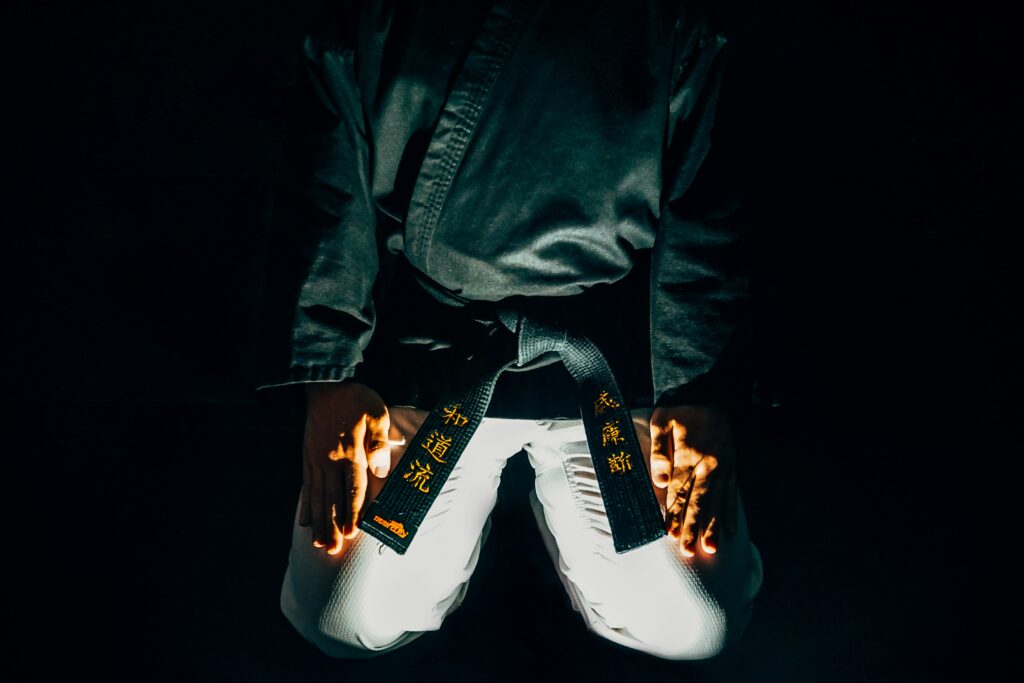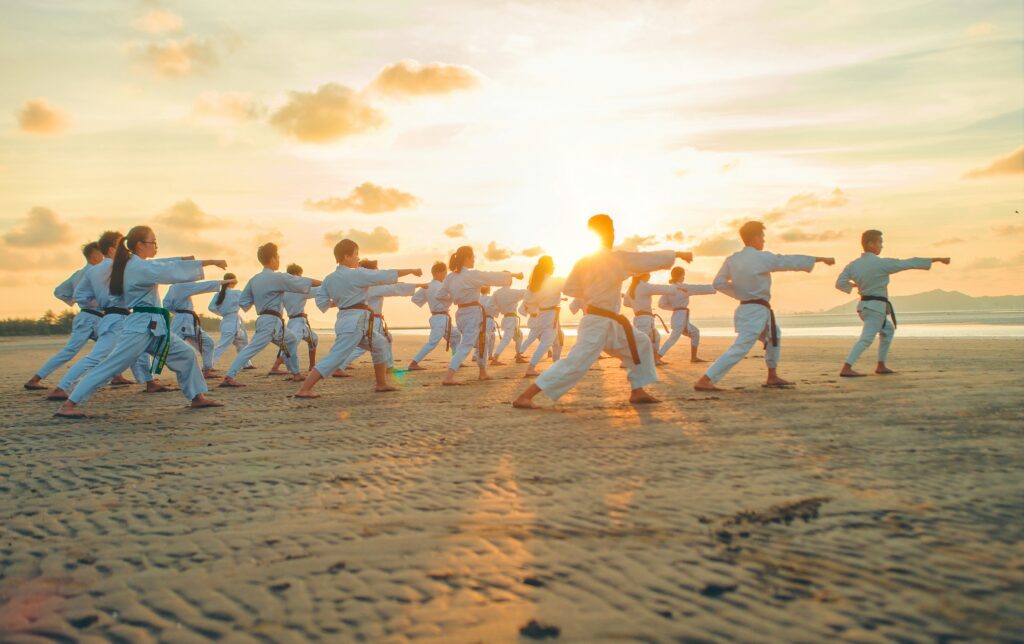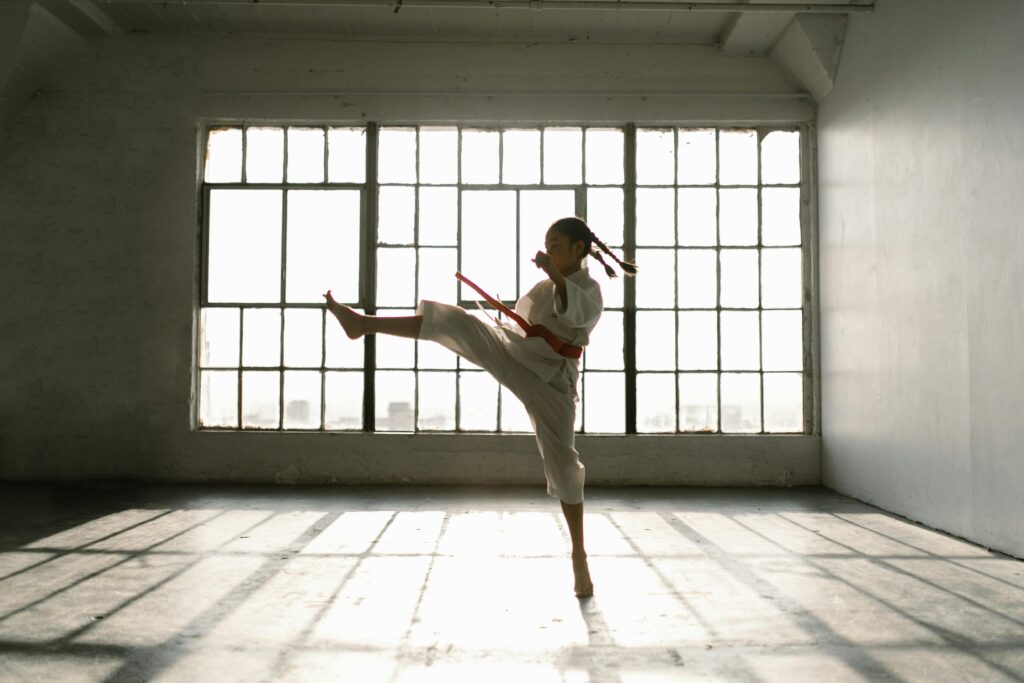Karate is more than just kicks, punches, and kata—it’s a mental game as much as a physical one. Whether you’re preparing for kumite, pushing through a tough grading, or just trying to survive a grueling training session, mental toughness is what separates an average martial artist from a great one.
But what exactly is mental toughness? It’s the ability to stay calm under pressure, push through fatigue, overcome fear, and keep going when every part of you wants to stop. The good news? It’s not something you’re just born with—it’s something you can develop, one training session at a time.
What Mental Toughness Means in Karate
Mental toughness isn’t just about enduring pain or acting fearless—it’s about training your mind to handle challenges effectively. In karate, this shows up in several ways:
Staying calm under pressure – Whether you’re in the middle of an intense kumite match or performing a kata in front of judges, keeping a clear mind is crucial.
Pushing through fatigue – When your muscles are burning, your breath is heavy, and your sensei calls for “one more round,” your ability to keep going is what builds resilience.
Overcoming fear – Fear of sparring, fear of failure, or fear of getting hit can hold you back. A strong mindset helps you face those fears head-on.
Maintaining focus – It’s easy to let distractions or self-doubt creep in, but a mentally tough fighter stays present and locked into the moment.

How to Build Mental Toughness
1. Embrace Discomfort
One of the biggest mental hurdles in karate is learning to be comfortable with discomfort. Tough training sessions, exhausting drills, and even getting hit in kumite all help build resilience. Instead of avoiding discomfort, lean into it. Remind yourself that every challenge is making you stronger.
2. Control Your Breathing
Breathing is your secret weapon. Under stress, many fighters hold their breath or breathe too fast, which leads to panic and exhaustion. Learning to control your breathing—especially through deep, controlled breaths—helps you stay calm, conserve energy, and focus. Try this: the next time you feel overwhelmed in training, take a slow breath in through your nose, hold for a second, and exhale slowly.
3. Use Visualization
Many elite fighters use mental imagery to prepare for competitions. Before sparring or a belt test, close your eyes and visualize yourself executing perfect techniques, staying composed, and winning your match. Your brain doesn’t fully distinguish between imagined and real experiences, so this technique actually improves your confidence and performance.
4. Set Small Challenges
Big goals—like winning a tournament or earning a black belt—can feel overwhelming. Instead, break them down into smaller, achievable challenges. Can you last one more round of kumite when you’re exhausted? Can you land just one clean counterattack today? Success in these small moments builds mental toughness over time.
5. Stay Present
It’s easy to get caught up in worrying about the future (“What if I lose this fight?”) or dwelling on mistakes (“I shouldn’t have dropped my guard!”). But the best fighters stay focused on the now. Train your mind to focus on the current moment—your stance, your opponent, your breath. The more you do this, the stronger your mental game will become.

Lessons from Kyokushin Fighters
Kyokushin is known as one of the toughest styles of karate, and its fighters have legendary mental toughness. Fighters like Mas Oyama, the founder of Kyokushin, pushed themselves through brutal training, testing their limits constantly. He once said, “One becomes a beginner after one thousand days of training, and an expert after ten thousand days of practice.” That kind of patience and persistence is what mental toughness is all about.
Another example is the 100-man kumite challenge, where a fighter must spar against 100 opponents in a row. This extreme test isn’t just about skill—it’s about having the mental and physical strength to endure when your body wants to give up.
While most of us won’t be facing 100 fights in a row, we can take inspiration from these warriors. Every time you push yourself a little harder in training, you’re building the same mindset that makes Kyokushin fighters so tough.

Mental toughness in karate isn’t just for elite fighters—it’s for anyone willing to push past their limits. By embracing discomfort, controlling your breathing, visualizing success, setting small challenges, and staying present, you’ll develop the mindset of a true martial artist.
So next time you’re exhausted in training, remember: your body can handle more than you think—it’s your mind you have to convince. Push through, stay strong, and keep fighting.
What’s the toughest moment you’ve overcome in karate? Let me know in the comments!
Stay happy, and healthy.

